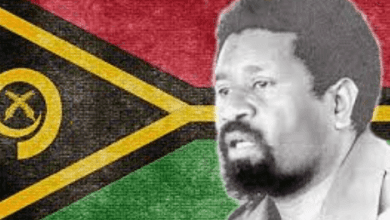Armed Forces Day In Liberia 2024
Celebrating Armed Forces Day in Liberia: Honoring Our Heroes
Join us as we pay tribute to the brave men and women who protect Liberia on Armed Forces Day. Discover their dedication and sacrifices.
Related:
QUICK FACTS:
- Date: February 11th
- Main Components: Military parades, awards ceremonies, speeches, and cultural performances
- Popularity: A national holiday in Liberia since 1956
- Pairings: Flag Day (August 24th) and Independence Day (July 26th)
- Variations: None
Introduction
The United States Africa Command (AFRICOM) is a unified combatant command that oversees U.S. military operations and relations in Africa. The Armed Forces of Liberia (AFL) is the military force of the Republic of Liberia, which has a history of civil war, coup, and conflict. The purpose of this article is to provide an overview of the history, challenges and opportunities of AFRICOM and the AFL, and their partnership for peace and security in the region.
History of AFRICOM and the AFL
AFRICOM was established in 2007 as a response to the growing strategic importance of Africa and the need for a more integrated approach to U.S. military engagement on the continent. The AFL traces its origins to the Liberia Frontier Force, a militia established in 1908 by the Liberian government to patrol the borders and protect the sovereignty of the country. The AFL underwent several transformations over the years, including becoming the Liberia National Guard in 1956, the National Army in 1960, and the Armed Forces of Liberia in 1984. The AFL was involved in several coups and conflicts, such as the 1980 coup that overthrew President William Tolbert, the First Liberian Civil War (1989-1997), and the Second Liberian Civil War (1999-2003). The AFL was disbanded and restructured after the civil wars, with the assistance of the United Nations Mission in Liberia (UNMIL), the Economic Community of West African States (ECOWAS), and other international partners.
Related: Independence Day In Grenada 2023
Challenges faced by AFRICOM and the AFL
AFRICOM faces several challenges in its mission to advance U.S. national interests and promote regional security, stability, and prosperity in Africa. Some of these challenges include:
- The diversity and complexity of the African continent, which has 54 countries, over 2000 languages, and various political, economic, social, and cultural contexts.
- The perception and legitimacy of AFRICOM among African governments and people, some of whom view it as a neocolonial or militaristic intervention.
- The coordination and cooperation with other U.S. government agencies, African partners, regional organizations, and multilateral institutions.
- The resource constraints and competing priorities of AFRICOM in a dynamic and uncertain global environment.
The AFL faces several challenges in its vision to become a professional, accountable, and respected military force that contributes to national development and regional peace. Some of these challenges include:
- The legacy and trauma of the civil wars, which left many veterans of the army marginalized, traumatized, and stigmatized.
- The reform and restructuring of the AFL, which requires building trust, confidence, and capacity among its personnel and civilian authorities.
- The security sector reform (SSR) process, which involves enhancing the governance, oversight, and coordination of all security institutions in Liberia.
- The post-UNMIL transition, which entails assuming full responsibility for national security after the withdrawal of UN peacekeepers in 2018.
Related: Unity Day In Burundi 2023
Opportunities for AFRICOM and the AFL
AFRICOM has several opportunities to leverage its capabilities and partnerships to support African solutions to African challenges. Some of these opportunities include:
- Strengthening bilateral and multilateral security cooperation with African countries and regional organizations through training, exercises, exchanges, and operations.
- Supporting African peacekeeping efforts through providing equipment, logistics, intelligence, and mentorship to African contingents deployed in UN or AU missions.
- Enhancing counterterrorism and counterinsurgency efforts through sharing information, expertise, and resources with African partners facing threats from violent extremist groups.
- Promoting human security and development through supporting humanitarian assistance, disaster relief, health sensitization, and community outreach activities.
The AFL has several opportunities to demonstrate its professionalism, accountability, and respectability as a military force that serves the nation and its people. Some of these opportunities include:
- Participating in international peacekeeping duties through deploying troops to Mali as part of the UN Multidimensional Integrated Stabilization Mission in Mali (MINUSMA).
- Protecting national sovereignty and territorial integrity through patrolling border areas and implementing border control mechanisms with neighboring countries.
- Contributing to national development and social cohesion through engaging in engineering projects such as building community roads, bridges, and schools.
- Upholding human rights and the rule of law through respecting civilian authority, adhering to the constitution, and cooperating with civil law institutions.
Conclusion
AFRICOM and the AFL have a long and complex history, which has shaped their current challenges and opportunities. AFRICOM and the AFL have a shared interest in promoting peace and security in Liberia and the region, and have developed a partnership based on mutual respect and cooperation. AFRICOM and the AFL can benefit from each other’s strengths and experiences, and can overcome their weaknesses and limitations through dialogue and collaboration.



